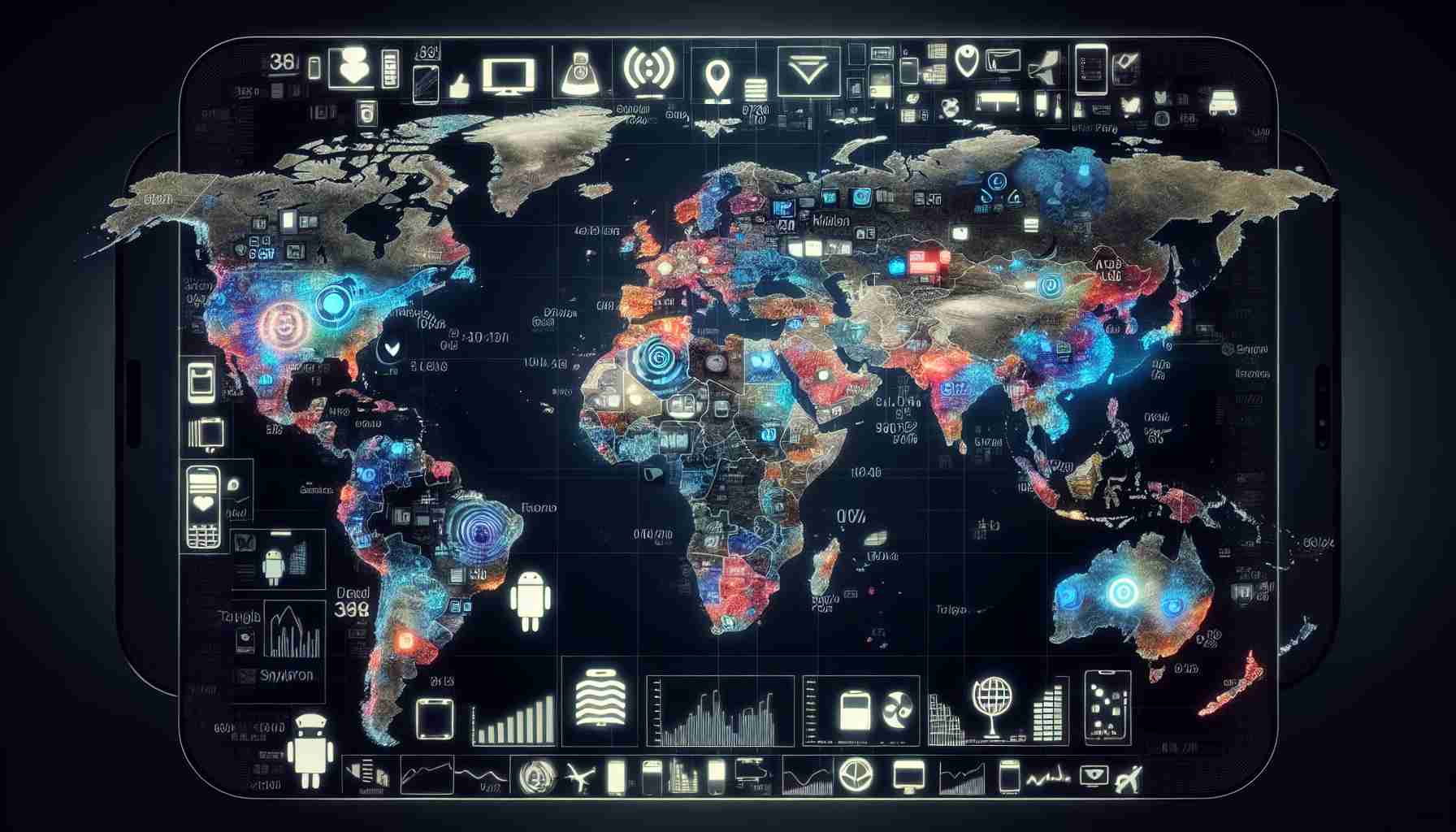In the global smartphone arena, two giants, Apple and Samsung, dominate with a combined market share exceeding 70% in some regions. However, their dominance is not universal. In several countries, alternative brands are gaining popularity, reflecting diverse preferences and financial considerations worldwide.
North America: Apple reigns supreme in North America, boasting a significant market share with over half of smartphone users choosing iPhones. Samsung secures a solid second place with an array of Galaxy models, including budget-friendly options more popular outside the U.S. and Canada. Google’s Pixel series also enjoys a modest following. In the United States and Canada, Apple holds sway, whereas Mexico showcases a stronger affinity for Samsung and Motorola’s economical offerings.
Europe: The European smartphone scene offers a different narrative. While Apple and Samsung still lead, Apple’s share is notably less commanding compared to North America, with Samsung closely trailing. Budget brands like Xiaomi, HUAWEI, and OPPO appeal to European consumers seeking affordable alternatives. In the UK, Apple captures nearly half the market, yet in frugal Germany and economically diverse Spain, Xiaomi emerges as a formidable competitor.
Asia: In Asia, Apple narrowly edges out Samsung, with a close race involving Xiaomi, vivo, and OPPO. Japan is a stronghold for Apple, with a majority of the population embracing iPhones, while in India, Chinese brands dominate due to their cost-effective options. The varied landscape underscores unique preferences across the continent, with affordability driving many purchasing decisions.
Emerging markets reveal continual shifts in consumer technology preferences, spotlighting the growing significance of affordable smartphones.
Is the Smartphone Market Shifting Towards Affordability Over Brand Loyalty?
In today’s rapidly evolving tech landscape, a fascinating trend is unfolding that pits affordability against brand loyalty in the smartphone market. As consumers become more discerning about their tech investments, emerging markets showcase a clear shift towards cost-effective options over traditionally dominant brands like Apple and Samsung. This trend has far-reaching implications for consumers, communities, and economies worldwide, redefining connectivity and digital inclusion.
Innovative Brands on the Rise
In regions where income levels and economic means vary, some lesser-known brands are carving out impressive niches by offering feature-rich, budget-friendly smartphones. Brands such as Xiaomi, HUAWEI, and OPPO are not just appealing based on price; they are bringing technological innovations that fit the unique needs of diverse user bases. In India, for example, local and Chinese brands have established themselves as household names, largely because they offer smartphones that pack a punch without hurting wallets.
The Power of Economic Influence
How does this trend affect people and communities? Affordable smartphones are improving connectivity in communities that would otherwise remain digitally excluded. This access not only connects families and friends but also opens the gateway to online education, remote work, and e-commerce, which can significantly uplift socio-economic standards.
However, this affordability shift comes with potential downsides. Concerns about data privacy and cybersecurity are often associated with lesser-known brands. These manufacturers may not always follow the rigorous data protection standards dictated by more established brands, causing a trade-off between cost and user security.
Redefining Competition and Innovation
What does the rise of these budget brands mean for established players? While Apple and Samsung continue to innovate with high-end features and luxury designs, they are increasingly pressured to justify their premium pricing. As a result, exciting advancements that were once reserved for flagship devices are trickling down to mid-range and entry-level models—benefiting consumers who gain greater access to technology.
Conversely, there is a risk that competition for lower price points could lead to a race to the bottom. This might result in compromises on build quality and support services that ultimately disadvantage consumers.
Fact or Hype: The Environmental Angle
Does the shift towards affordable phones contribute positively or negatively to environmental sustainability? Critics argue that cheaper models generally have shorter lifespans and are less likely to be repaired, exacerbating e-waste problems. On the flip side, the evolution of manufacturing processes has driven some companies to adopt eco-friendly materials and practices, thus potentially mitigating environmental impact.
Global Implications
Finally, what could be the geopolitical implications of this shift? As Chinese brands expand their influence in international markets, they potentially reshape global trade dynamics and influence geopolitical relationships. This trend ushers in a new era of digital diplomacy, where technological partnerships can become as impactful as traditional economic agreements.
For further insights into the evolving tech landscape and its implications, explore these resources:
– Gartner
– IDC
– TechCrunch
In conclusion, as affordable smartphones change the global market landscape, they challenge the status quo and elevate worldwide connectivity, ultimately shaping the future of how we connect, learn, and engage in the digital age.























